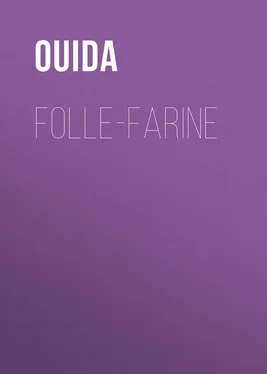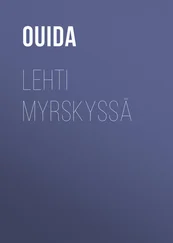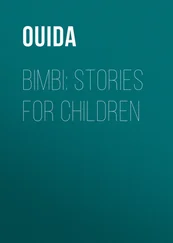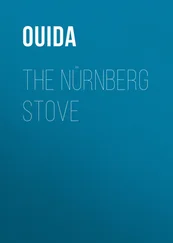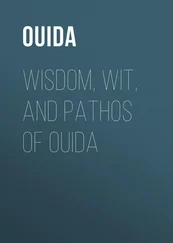Ouida - Folle-Farine
Здесь есть возможность читать онлайн «Ouida - Folle-Farine» — ознакомительный отрывок электронной книги совершенно бесплатно, а после прочтения отрывка купить полную версию. В некоторых случаях можно слушать аудио, скачать через торрент в формате fb2 и присутствует краткое содержание. Жанр: foreign_prose, literature_19, foreign_antique, на английском языке. Описание произведения, (предисловие) а так же отзывы посетителей доступны на портале библиотеки ЛибКат.
- Название:Folle-Farine
- Автор:
- Жанр:
- Год:неизвестен
- ISBN:нет данных
- Рейтинг книги:5 / 5. Голосов: 1
-
Избранное:Добавить в избранное
- Отзывы:
-
Ваша оценка:
- 100
- 1
- 2
- 3
- 4
- 5
Folle-Farine: краткое содержание, описание и аннотация
Предлагаем к чтению аннотацию, описание, краткое содержание или предисловие (зависит от того, что написал сам автор книги «Folle-Farine»). Если вы не нашли необходимую информацию о книге — напишите в комментариях, мы постараемся отыскать её.
Folle-Farine — читать онлайн ознакомительный отрывок
Ниже представлен текст книги, разбитый по страницам. Система сохранения места последней прочитанной страницы, позволяет с удобством читать онлайн бесплатно книгу «Folle-Farine», без необходимости каждый раз заново искать на чём Вы остановились. Поставьте закладку, и сможете в любой момент перейти на страницу, на которой закончили чтение.
Интервал:
Закладка:
Ouida
Folle-Farine
"Un gazetier fumeux qui se croit au flambeau
Dit au pauvre qu'il a noyé dans les ténèbres:
Où donc l'aperçois-tu ce Créateur du Beau?
Ce Rédresseur que tu célèbres!"
BOOK I
CHAPTER I
Not the wheat itself; not even so much as the chaff; only the dust from the corn. The dust which no one needs or notices; the mock farina which flies out from under the two revolving circles of the grindstones; the impalpable cloud which goes forth to gleam golden in the sun a moment, and then is scattered—on the wind, into the water, up in the sunlight, down in the mud. What matters? who cares?
Only the dust: a mote in the air; a speck in the light; a black spot in the living daytime; a colorless atom in the immensity of the atmosphere, borne up one instant to gleam against the sky, dropped down the next to lie in a fetid ditch.
Only the dust: the dust that flows out from between the grindstones, grinding exceeding hard and small, as the religion which calls itself Love avers that its God does grind the world.
"It is a nothing, less than nothing. The stones turn; the dust is born; it has a puff of life; it dies. Who cares? No one. Not the good God; not any man; not even the devil. It is a thing even devil-deserted. Ah, it is very like you," said the old miller, watching the millstones.
Folle-Farine heard—she had heard a hundred times,—and held her peace.
Folle-Farine: the dust; only the dust.
As good a name as any other for a nameless creature. The dust,—sharp-winnowed and rejected of all, as less worthy than even the shred husks and the shattered stalks.
Folle-Farine,—she watched the dust fly in and out all day long from between the grindstones. She only wondered why, if she and the dust were thus kindred and namesakes, the wind flew away with the dust so mercifully, and yet never would fly away with her.
The dust was carried away by the breeze, and wandered wherever it listed. The dust had a sweet, short, summer-day life of its own ere it died. If it were worthless, it at least was free. It could lie in the curl of a green leaf, or on the white breast of a flower. It could mingle with the golden dust in a lily, and almost seem to be one with it. It could fly with the thistle-down, and with the feathers of the dandelion, on every roving wind that blew.
In a vague dreamy fashion, the child wondered why the dust was so much better dealt with than she was.
"Folle-Farine! Folle—Folle—Folle—Farine!" the other children hooted after her, echoing the name by which the grim humor of her bitter-tongued taskmaster had called her. She had got used to it, and answered to it as others to their birthnames.
It meant that she was a thing utterly useless, absolutely worthless; the very refuse of the winnowings of the flail of fate. But she accepted that too, so far as she understood it; she only sometimes wondered in a dull fierce fashion why, if she and the dust were sisters, the dust had its wings while she had none.
All day long the dust flew in and out and about as it liked, through the open doors, and among the tossing boughs, and through the fresh cool mists, and down the golden shafts of the sunbeams; and all day long she stayed in one place and toiled, and was first beaten and then cursed, or first cursed and then beaten,—which was all the change that her life knew. For herself, she saw no likeness betwixt her and the dust; for that escaped from the scourge and flew forth, but she abode under the flail, always.
Nevertheless, Folle-Farine was all the name she knew.
The great black wheel churned and circled in the brook water, and lichens and ferns and mosses made lovely all the dark, shadowy, silent place; the red mill roof gleamed in the sun, under a million summer leaves; the pigeons came and went all day in and out of their holes in the wall; the sweet scents of ripening fruits in many orchards filled the air; the great grindstones turned and turned and turned, and the dust floated forth to dance with the gnat and to play with the sunbeam.
Folle-Farine sat aloft, on the huge, black, wet timbers above the wheel, and watched with her thoughtful eyes, and wondered again, after her own fashion, why her namesake had thus liberty to fly forth whilst she had none.
Suddenly a shrill, screaming voice broke the stillness savagely.
"Little devil!" cried the miller, "go fetch me those sacks, and carry them within, and pile them; neatly, do you hear? Like the piles of stone in the road."
Folle-Farine swung down from the timbers in obedience to the command, and went to the heap of sacks that lay outside the mill; small sacks, most of them; all of last year's flour.
There was an immense gladiolus growing near, in the mill-garden, where they were; a tall flower all scarlet and gold, and straight as a palm, with bees sucking into its bells, and butterflies poising on its stem. She stood a moment looking at its beauty; she was scarce any higher than its topmost bud, and was in her way beautiful, something after its fashion. She was a child of six or eight years, with limbs moulded like sculpture, and brown as the brook water; great lustrous eyes, half savage and half soft; a mouth like a red pomegranate bud, and straight dark brows—the brows of the friezes of Egypt.
Her only clothing was a short white linen kirtle, knotted around her waist, and falling to her knees; and her skin was burned, by exposure in the sun, to a golden-brown color, though in texture it was soft as velvet, and showed all the veins like glass. Standing there in the deep grass, with the great scarlet flower against her, and purple butterflies over her head, an artist would have painted her and called her by a score of names, and described for her some mystical or noble fate: as Anteros, perhaps, or as the doomed son of Procne, or as some child born to the Forsaken in the savage forests of Naxos, or conceived by Persephone, in the eternal night of hell, while still the earth lay black and barren and fruitless, under the ban and curse of a bereaved maternity.
But here she had only one name, Folle-Farine; and here she had only to labor drearily and stupidly like the cattle of the field; without their strength, and with barely so much even as their scanty fare and begrudged bed.
The sunbeams that fell on her might find out that she had a beauty which ripened and grew rich under their warmth, like that of a red flower bud or a golden autumn fruit. But nothing else ever did. In none of the eyes that looked on her had she any sort of loveliness. She was Folle-Farine; a little wicked beast that only merited at best a whip and a cruel word, a broken crust and a malediction; a thing born of the devil, and out of which the devil needed to be scourged incessantly.
The sacks were all small; they were the property of the peasant proprietors of the district,—a district of western Normandy. But though small they were heavy in proportion to her age and power. She lifted one, although with effort, yet with the familiarity of an accustomed action; poised it on her back, clasped it tight with her round slender arms, and carried it slowly through the open door of the mill. That one put down upon the bricks, she came for a second,—a third,—a fourth,—a fifth,—a sixth, working doggedly, patiently and willingly, as a little donkey works.
The sacks were in all sixteen; before the seventh she paused.
It was a hot day in mid-August: she was panting and burning with the exertion; the bloom in her cheeks had deepened to scarlet; she stood a moment, resting, bathing her face in the sweet coolness of a white tall tuft of lilies.
The miller looked round where he worked, among his beans and cabbages, and saw.
Читать дальшеИнтервал:
Закладка:
Похожие книги на «Folle-Farine»
Представляем Вашему вниманию похожие книги на «Folle-Farine» списком для выбора. Мы отобрали схожую по названию и смыслу литературу в надежде предоставить читателям больше вариантов отыскать новые, интересные, ещё непрочитанные произведения.
Обсуждение, отзывы о книге «Folle-Farine» и просто собственные мнения читателей. Оставьте ваши комментарии, напишите, что Вы думаете о произведении, его смысле или главных героях. Укажите что конкретно понравилось, а что нет, и почему Вы так считаете.
